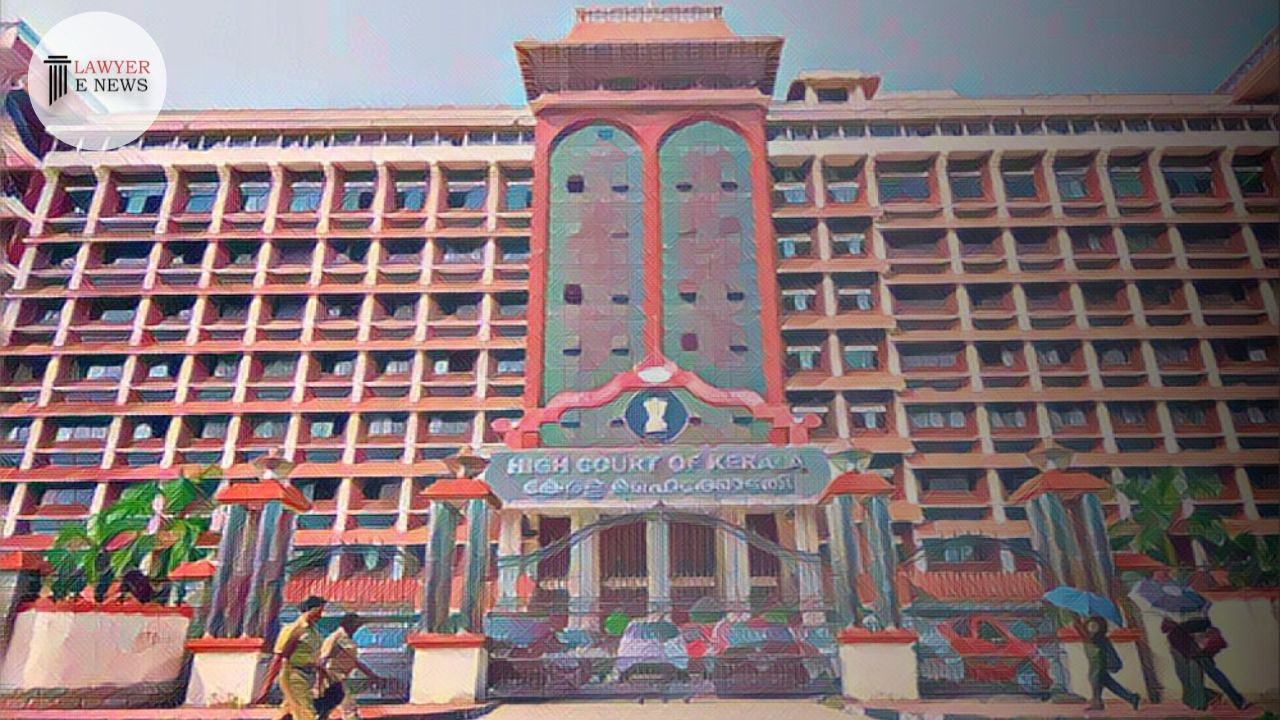-
by Admin
15 February 2026 5:35 AM



Justice C. Pratheep Kumar emphasizes historical evidence and intent in modifying the pathway width in a complex easement case.
The High Court of Kerala at Ernakulam has issued a landmark judgment in a protracted family dispute over the right of easement by grant along a pathway described in a will. The court, presided over by Justice C. Pratheep Kumar, has modified the width of the pathway, crucial for access between properties, limiting it to 1.5 meters on the western end and 1.4 meters on the eastern end. This decision partially overturns the findings of the trial and first appellate courts.
Credibility of Pathway Existence:
The court acknowledged the historical existence of the pathway as described in the will of Kunjukrishna Pillai, the father of the disputing parties. “The presence of a well-defined pathway, acknowledged in the will and subsequent settlement deeds, is indisputable,” the bench noted. Despite the defendant’s contention that the pathway was relocated, the court found substantial evidence supporting the pathway’s continuous existence along the northern side of the property.
Determining Pathway Width:
Justice Pratheep Kumar highlighted the critical role of the Commissioner’s report, which noted the presence of gates with specific widths at both ends of the pathway. “The gates, which have been in place for decades, provide reliable evidence of the pathway’s intended width,” the court observed. The western gate, measuring 1.5 meters, and the eastern gate, measuring 1.4 meters, were key in the court’s determination of the pathway’s width.
The court extensively discussed the principles of easement by grant, emphasizing the importance of adhering to the grantor’s intentions. “The testator’s will and subsequent deeds clearly intended for the existing pathway to be preserved without modification,” the judgment stated. The court also addressed the issue of pathway width, noting that the dimensions should reflect practical usage and historical context.
Witness Testimonies and Evidence:
Regarding the challenge to the will based on the non-examination of an attesting witness, the court found no merit in the argument. “The defendant did not contest the will’s validity during earlier proceedings, and the examination of the plaintiff’s husband as a competent witness under Section 120 of the Indian Evidence Act suffices,” Justice Kumar remarked.
The court analyzed several legislative provisions, including Sections 70 and 152 of the Indian Succession Act, and Section 68 of the Indian Evidence Act. The judgment clarified that the execution of settlement deeds did not invalidate the will, thereby upholding the easement granted therein.
Justice Pratheep Kumar remarked, “The intent of the grantor, as expressed in the will, must guide the determination of the pathway’s width. The existing gates are a significant indicator of this intent.”
The Kerala High Court’s judgment in the regular second appeals RSA No. 989 of 2006 and RSA No. 349 of 2007 underscores the judiciary’s commitment to resolving long-standing family disputes with meticulous attention to evidence and legislative intent. By affirming the right of easement but modifying the pathway’s width, the court has provided a balanced resolution that respects both the historical context and practical considerations. This decision is expected to influence future cases involving similar disputes, reinforcing the importance of clear and consistent pathway definitions in property agreements.
Date of Decision: 20th June 2024
Kumaran Nair vs. Radha Bai & Ors.
